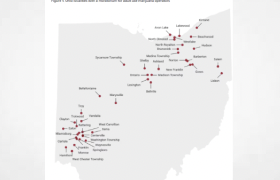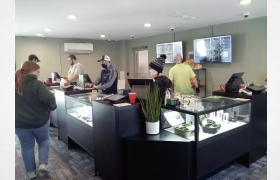FLORIDA V. JARDINES, 569 U.S. 1 (2013)
By: Mary Grace Harris
Issue: Did the officer conduct a search pursuant to the Fourth Amendment, by using a narcotics sniffing dog to enhance the senses of the officer?
Facts: Police got a tip that cannabis was being grown in Jardines’ home. An officer approached the home with a drug sniffing dog, who was trained to smell cannabis. The dog sat at the front door, signaling that it was at the smell’s strongest point. Based on this interaction, the police applied and received a search warrant, executing it later that day, and finding cannabis plants in Jardines’ home. Jardines was arrested and charged with trafficking cannabis. At trial Jardines moved to suppress the plants found, saying that the dog sniffing was a search and violated his Fourth Amendment rights.
Rule: A search under the Fourth Amendment is when “the government obtains information by physically intruding” on persons, papers, or effects.”
Reasoning: The officer was gathering information on what is called the curtilage of the house, the Court has held curtilage, the area immediately surrounding the home, is part of the home itself and therefore protected under the Fourth Amendment. To gather information from that home/curtilage, officers must have a warrant. The Court points out the protection of a person’s home is foundational in protecting against the government intruding at their will. A person may come up to someone’s door, knock, such as with trick or treating, that does not violate the Fourth, but an officer, with a trained police dog, looking for incriminating evidence is different in its entirety.
Conclusion: The officers learned what they learned only by physically intruding on Jardines’ property to gather evidence, which is enough to establish that a search occurred, and that Jardines’ Fourth Amendment right was violated.
Takeaways: USATODAY.com reported that Florida legalized the use of cannabis for medical purposes only, just three years after this case was decided at the supreme court. Having the state prosecute, up to the supreme court, speaks to the measures that Florida takes to prosecute cannabis related offenses.
FLORIDA V. JARDINES, 569 U.S. 1 (2013)
FLORIDA v. JARDINES
73 So. 3d 34, affirmed.
- Syllabus [Syllabus] [PDF]
- Opinion, Scalia [Scalia Opinion] [PDF]
- Concurrence, Kagan [Kagan Concurrence] [PDF]
- Dissent, Alito [Alito Dissent] [PDF]

















